Team members move on to new jobs and opportunities — seeing them come and go is part of running a business — but departing employees can provide you with valuable information and insights into your business operations.
To conduct an effective exit interview, you need to ask the right questions; they can help you gather important data you can use to improve the employee experience for current and future staff. And that data can help you reduce employee turnover and even attract high-quality future employees.
Pro Tip
Conduct effective and enlightening exit surveys with Jotform’s free exit interview survey templates.
The best exit interview questions to ask
The following open-ended questions give your former employees the chance to provide honest feedback. The questions are designed to shed light on what is and isn’t working well at your company and in your work environment. With this feedback, you can make changes that improve employee retention.
Jotform’s exit survey template provides excellent foundational questions that you can use for employee exit interviews. Consider adding the following questions to further tailor the interview to your business.
What was the interview process for this position like? What would you change about this process?
During the interview process, you’re evaluating job applicants, but they’re also assessing your business and the position to decide if it’s right for them. This process can quickly shape an applicant’s impression of the workplace. Asking for details about the employee’s experience with the interview process can help you identify flaws and improve the process for future applicants.
What did you like about your position? What do you think should change?
This question can prompt valuable feedback about how the position is structured. Suggestions for changes may help you identify improvements that can benefit future employees as well as your current business.
Did you feel like you had everything you needed to do your job well?
Whether an employee feels like they were lacking training during the onboarding process, supervision, technology elements, or other essentials, identifying shortcomings can help you better set up future employees for success.
How would you describe your job responsibilities in this position? How do those responsibilities compare to your job description?
As positions evolve, staff responsibilities frequently change. This can result in an employee performing much different work at the end of their time with a business than their initial job description detailed. Asking this question can give you insight into exactly what your employee did — and whether you may need to restructure the position or revise the job description.
What types of development opportunities are most important to you?
Providing appropriate opportunities for development and growth is essential for employee engagement and staff retention. This question may give you new ideas to help employees grow and develop. You can then use these opportunities to encourage quality job applicants to apply for a position and to support your current workers.
What do you appreciate about the company culture, and what do you wish you could change?
Shaping and refining company culture can be challenging, but it’s worth it because that culture has a significant impact on the team. Understanding the elements of the culture that need improvement can help you establish goals and identify the steps you need to take.
What prompted you to look for a new job?
Moving on to new opportunities is often a natural progression for staff, but it’s also important for you to identify whether there were issues that contributed to an employee’s decision to leave. Identifying and remedying these issues can help you avoid high turnover.
Did you share your concerns with anyone at the company?
If employee issues arise, working to solve those issues can help with employee retention — and it can demonstrate to all employees that you value them. Ensuring that supervisors, human resources departments, and other support systems are in place can help employees get that help if they want it.
What could we have done better?
This is an ideal question to end your exit interview with. It gives your employee a chance to bring up any problems that previous questions didn’t reveal, and it lets them discuss the employee-employer experience from a broader perspective.
Putting constructive feedback to use
Your employee exit interviews are only valuable if you put the information you’ve gained to use in your business. Review the survey results with relevant team members and discuss what changes you can make to improve the employee experience for your staff. Comments from departing employees can help you develop new positions, new business practices, and new policies that may improve your bottom line in the long run.

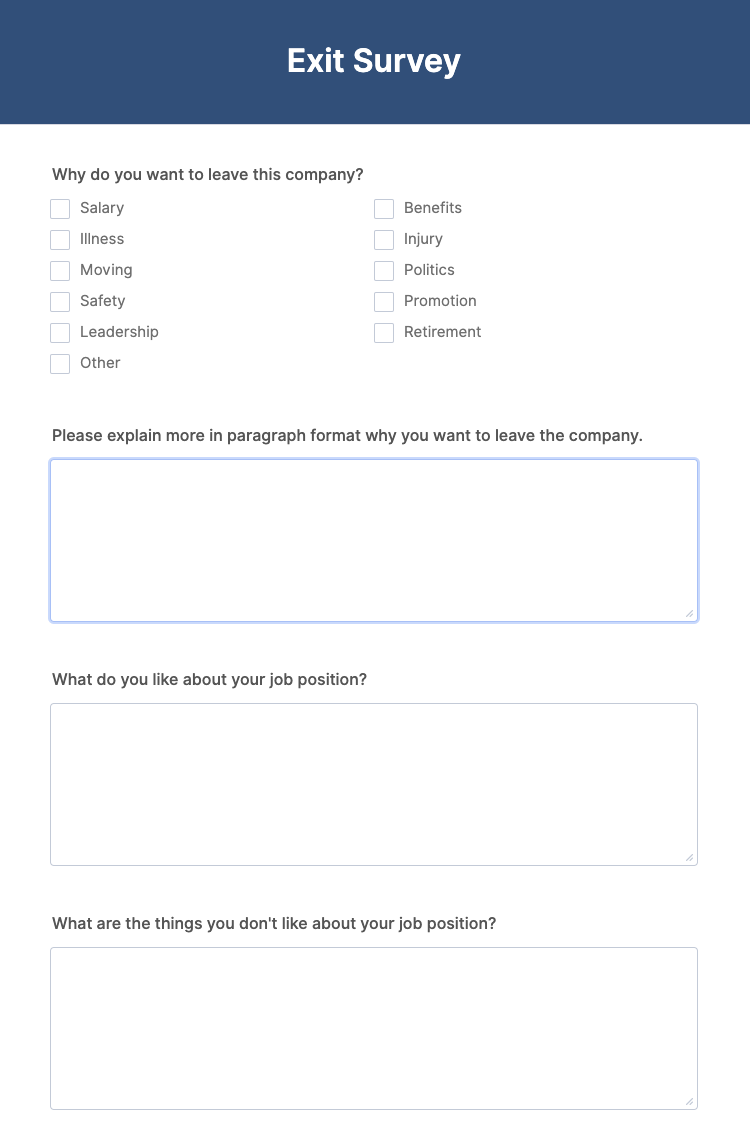

















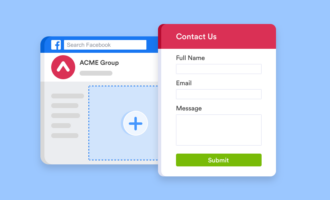










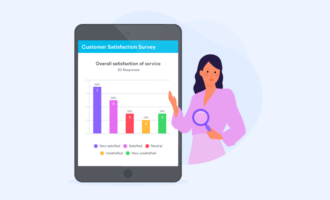




























































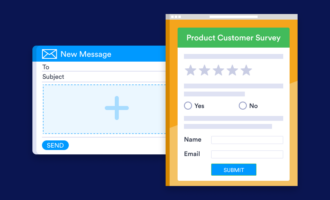








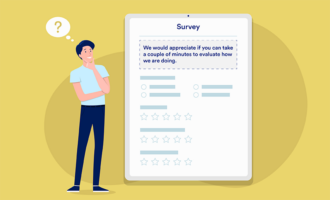



Send Comment: